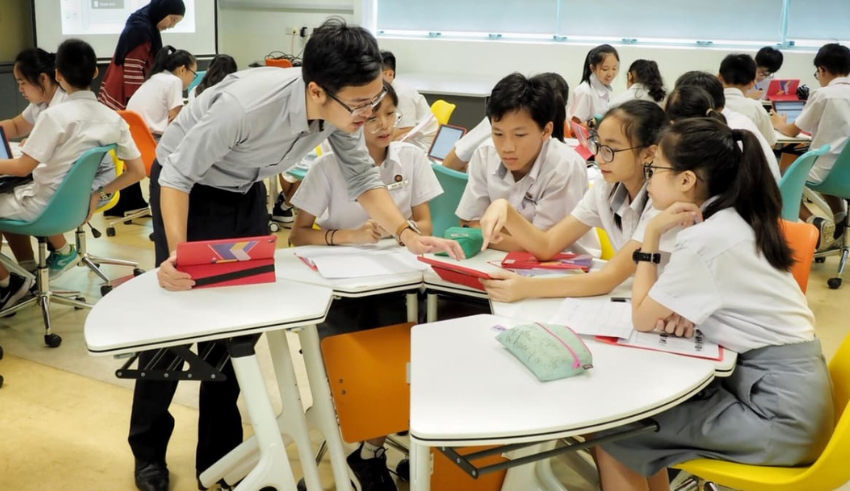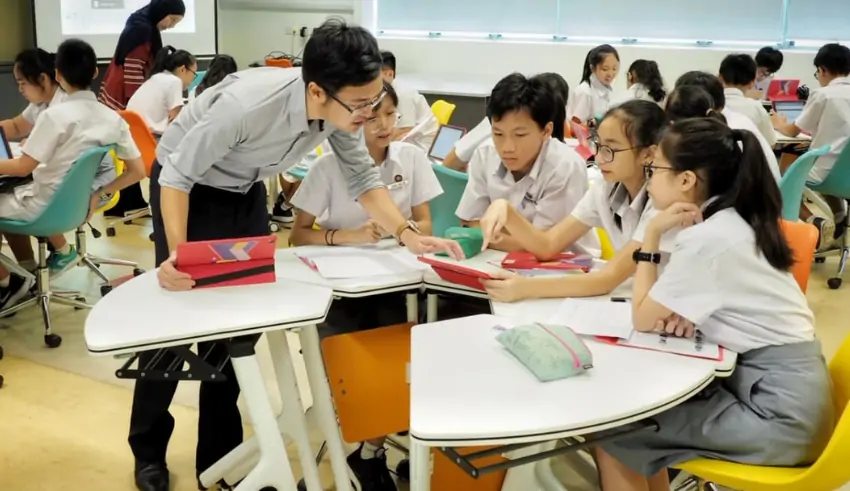

(C) Cocotutors
Singapore has once again emerged as the best performer in international education tests, scoring the highest marks in maths, science and reading among primary and secondary students. The city-state was followed by other Asian countries such as Hong Kong, Japan and South Korea, which also ranked among the top five in the latest Trends in International Mathematics and Science Study (TIMSS) and Progress in International Reading Literacy Study (PIRLS) released on Tuesday.
The TIMSS and PIRLS are conducted every four years by the International Association for the Evaluation of Educational Achievement, a non-profit organisation based in Amsterdam. The tests measure the academic abilities of students in grades four and eight (or equivalent) across 64 countries and regions. More than 600,000 students participated in the 2023 assessments, which were administered in late 2022.
According to the results, Singaporean students outperformed their peers in all three subjects, achieving an average score of 625 in maths, 597 in science and 576 in reading. Hong Kong came second in maths (614) and reading (569), and third in science (570). Japan was third in maths (610) and reading (558), and fourth in science (569). South Korea was second in science (589), fourth in maths (608) and fifth in reading (549). Taiwan rounded up the top five in maths (596) and science (569), and ranked sixth in reading (542).
The report also highlighted the achievements of some European countries, such as Russia, Ireland, Finland and Poland, which scored above the international average in all subjects. However, it also noted a worrying decline in the performance of some Western nations, such as the UK and the US, which ranked 20th and 28th respectively in maths, 15th and 25th in science, and 13th and 15th in reading.
The report attributed the success of the Asian countries to several factors, such as high-quality teachers, rigorous curricula, parental involvement and cultural values that emphasise the importance of education. It also suggested that the use of technology, such as computers and tablets, in classrooms and at home could enhance students’ learning experiences and outcomes.
The report also urged policymakers and educators to address the challenges and gaps that still exist in the global education system, such as the disparities in achievement between boys and girls, urban and rural areas, and socio-economic groups. It also called for more efforts to foster students’ interest and confidence in learning, as well as their critical thinking and problem-solving skills.
The report concluded that the TIMSS and PIRLS provide valuable insights and benchmarks for improving the quality and equity of education around the world. It also stressed the need for more collaboration and exchange of best practices among countries and regions to ensure that all students have access to the opportunities and benefits of education.
Through software update Nothing OS 3.1 the company improves functionality of Phone (3a) and Phone (3a) Pro models. Global service…
China's electric vehicle (EV) giant BYD has officially taken over the global EV market, with a whopping revenue of 777…
The Japanese women’s curling team has a tough road to qualification for the 2026 Milan-Cortina Winter Olympics. Having silver and…
Rajasthan Royals vs Kolkata Knight Riders will be playing matchesin the Indian Premier League 2025 match at Barsapara Stadium, Guwahati…
Vietnam becomes the rising star for that tourism scene in the annals of Southeast Asia; it surpasses its regional competitors…
The Chinese Coast Guard ships extended their stays near the Senkaku Island region which led Japan to lodge formal diplomatic…
This website uses cookies.
Read More